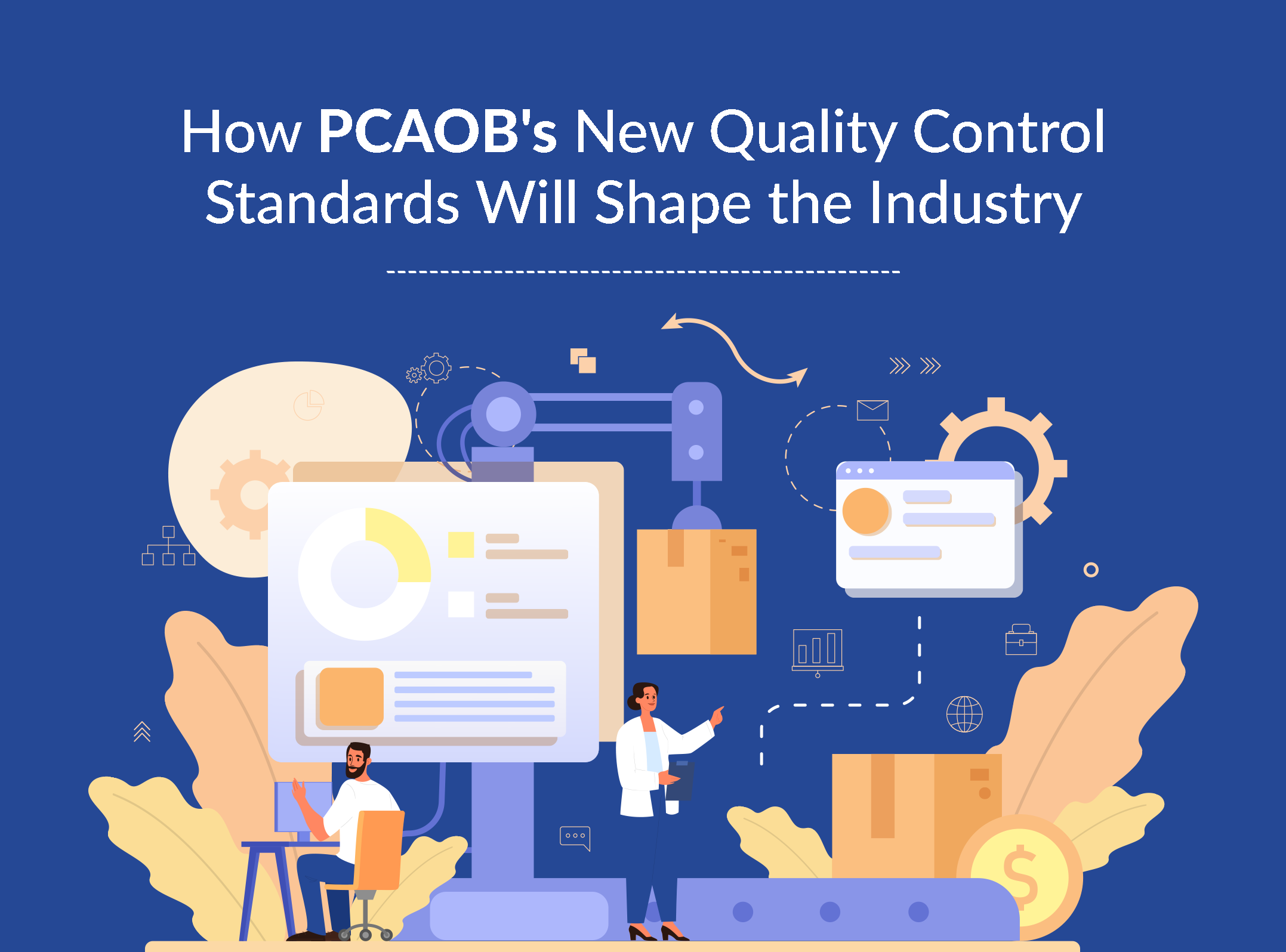On May 13, 2024, the Public Company Accounting Oversight Board (PCAOB) adopted a new standard to enhance quality control (QC) systems in registered public accounting firms.
These new quality control standards mandate that firms identify specific risks and establish QC systems with policies and procedures to mitigate these risks.
What’s New in the PCAOB QC Standards?
- A Risk-Based Approach: The new standard strikes a balance between a risk-based approach to quality control (QC) and specific mandates. This approach encourages firms to proactively identify and manage the specific risks associated with their practices while ensuring that their QC systems are rigorously designed, implemented, and operated.
- Continuous Improvement and Reporting: All PCAOB-registered firms are required to design a QC system that complies with the new standard. Firms that perform audits of public companies or SEC-registered brokers and dealers must implement, monitor, and take remedial actions where necessary, creating a continuous feedback loop for improvement.
Firms must annually evaluate their QC systems and report the results to the PCAOB on the new Form QC, which must be certified by key firm personnel to reinforce individual accountability.
- External QC Function for Large Firms: Firms auditing over 100 issuers annually must establish an External QC Function (EQCF), which includes one or more individuals who can exercise independent judgment regarding the firm’s QC system.
The EQCF’s responsibilities include evaluating the significant judgments and conclusions made by the firm when assessing the effectiveness of its QC system.
- Effective Date and Applicability: The new standard will apply to all PCAOB-registered firms. Subject to approval by the U.S. Securities and Exchange Commission, the new standard and related amendments will take effect on December 15, 2025.
Here’s a simple breakdown of what’s changing:
- New Quality Control Standard (QC 1000): The current quality control standards will be replaced with a new, integrated system that focuses on identifying and managing risks. This new standard will apply to all registered public accounting firms.
- New Reporting Requirements: Firms will need to report on their quality control practices using a new, confidential form called Form QC.
- Expanded Auditor Responsibilities: Auditors will have more responsibility to check for and address any issues in their work, even after the audit report is finished. This change is reflected in a revised rule called AS 2901, which also affects rules for auditing brokers and dealers.
- Updated Ethics Standard (EI 1000): The current ethics standard (ET 102) will be replaced with a new one (EI 1000) that aligns better with the new quality control standard (QC 1000).
- Other Changes: There will be additional updates to various PCAOB rules and forms to support these changes.
Background and Development of the New Standards
The Board carefully considered the potential for improvements to PCAOB QC standards through efforts that included discussions with PCAOB advisory groups, a December 2019 concept release, and a November 2022 proposal for public comment.
These actions generated robust stakeholder input, which, along with the PCAOB’s own economic analysis, informed the new standard.
Importance of the New QC Standards
- The PCAOB prioritizes modernizing QC due to significant changes in the auditing environment.
- Existing QC standards were developed by the American Institute of Certified Public Accountants before the PCAOB’s inception in 2002.
- Effective QC systems lead to high-quality audits, thereby better protecting investors, as emphasized by PCAOB Chair Erica Y. Willians.

What is PCAOB?
The Public Company Accounting Oversight Board (PCAOB) is a non-profit organization established by Congress in 2002 to oversee the audits of public companies. Its mission is to ensure accurate, reliable audit reports, protect investors, and enhance public trust in financial reporting through standard-setting, inspections, and enforcement activities.
Resources:
Information on the history of this project, including historical documents and comments received, can be found in Rulemaking Docket 046 and the related Standard-Setting Project page.


